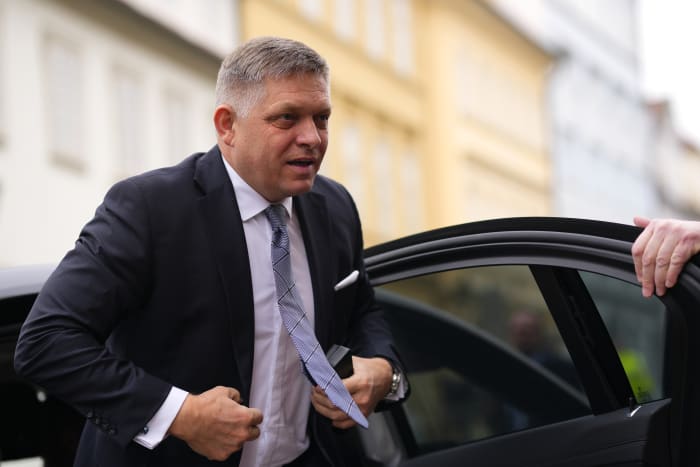SEOUL (Reuters) – South Korea’s Hyundai Motor said on Friday it was in early talks with Apple after a local TV channel said the two companies were discussing connecting the electric car and battery, sending Hyundai shares up 25%.
The report comes weeks after Reuters announced that Apple is pressing ahead with self-driving car technology and was aiming to produce a passenger car that could include its own battery technology as early as 2024.
Earlier on Friday, Korea Economic Daily TV said the iPhone maker and Hyundai were in discussions to develop electric autonomous cars by 2027 and to develop batteries in US factories run by Hyundai or its affiliate Kia Motors Corp. The broadcaster did not cite sources for her report.
Hyundai said in a statement: „Apple and Hyundai are in discussions, but since it is an early stage, nothing has been decided.“ He did not mention what the talks were about and deleted a hint in a previous statement that Apple was in discussions with other global automakers as well as Hyundai.
In a later regulatory file, the automaker did not mention Apple, saying it was „receiving requests for cooperation in the joint development of autonomous electric vehicles from various companies,“ without specifying which one.
Apple declined to comment.
Hyundai’s statement reviews indicate it will likely be more cautious about future communications about any potential partnership with the iPhone maker, which has been known to keep product plans under wraps.
The Apple-branded car could pose a huge challenge to Tesla Inc, market leader in electric cars. It remains unclear who will collect such a vehicle, but analysts have said they expect the company to rely on a manufacturing partner to build the cars.
“We still firmly believe that Apple will ultimately announce a strategic partnership for electric cars in 2021 that will lay the groundwork for entering the booming electric vehicle field,” Wedbush analysts said in a note.
Lower costs
Hyundai and Apple are already working together on CarPlay, Apple’s program to connect iPhones to vehicles from a variety of automakers.
„It makes sense for Apple to outsource car production to Hyundai because (the Korean company) is known for quality,“ said Jeong Yun-Woo, a former Hyundai designer and professor at UNIST in South Korea.
He added, „But I am not sure whether it is a good strategy for the automakers to be like Foxconn at Apple, as car makers face risks of losing control of technology companies,“ referring to the manufacturer’s supply contract for the Taiwanese contract with Apple on iPhones.
Analysts said Apple may be interested in using Hyundai’s electric vehicle platform and facilities to reduce car development and manufacturing costs.
„Apple could see Hyundai as an ideal partner, because when it comes to the old American automakers, they all have a strong union, which is what Apple would like to avoid,“ said Kevin Yu, analyst at eBEST Investment & Securities.
„Moreover, the labor cost (of the old American automakers) is much higher than that of Hyundai, which often plays a big role when it comes to producing cars.“
Equalizer boost
The link with Apple would be a big boost for the automaker, whose global sales fell more than 15% last year as the pandemic affected demand. Friday’s share price hike added nearly $ 8 billion to Hyundai’s market value.
Hyundai, the champion of rival hydrogen fuel cell cars, recently raised bets on battery-powered electric cars, a move welcomed by investors looking forward to Tesla’s recent success.
The South Korean company, which acquires the batteries from SK Innovation Co Ltd, LG Chem Ltd and others, is expected to launch its first vehicle based on a dedicated electric vehicle platform known as E-GMP early this year.
In 2019, Hyundai and auto parts supplier Aptiv launched a $ 4 billion project to develop autonomous driving technologies, and named it Motional. Last month, passenger service company Lyft and Motional said it would launch an American multi-city automated taxi service in 2023.
Analysts said Hyundai does not have dedicated electric vehicle plants in the United States, and it may have to seek approval from its powerful South Korea association if it seeks to build electric cars abroad.
Shares in Hyundai Motor jumped 24.8%, reaching a more than seven-year high of 255,000 won, before closing up 19%. Auto parts maker Hyundai Mobis ended the session 18% higher, while Kia’s shares jumped 8.4%.
Battery manufacturers also gained ground, with SK Innovation closing down 7.6%. The broader Kospi market closed up 3.97% after rising 4.3% during the session.
Covered by Heikyung Yang, Hyunjo Jin in Seoul, and Stephen Nellis in San Francisco; Edited by Sayantani Ghosh and Kenneth Maxwell

„Organizátor. Spisovateľ. Zlý kávičkár. Evanjelista všeobecného jedla. Celoživotný fanúšik piva. Podnikateľ.“




